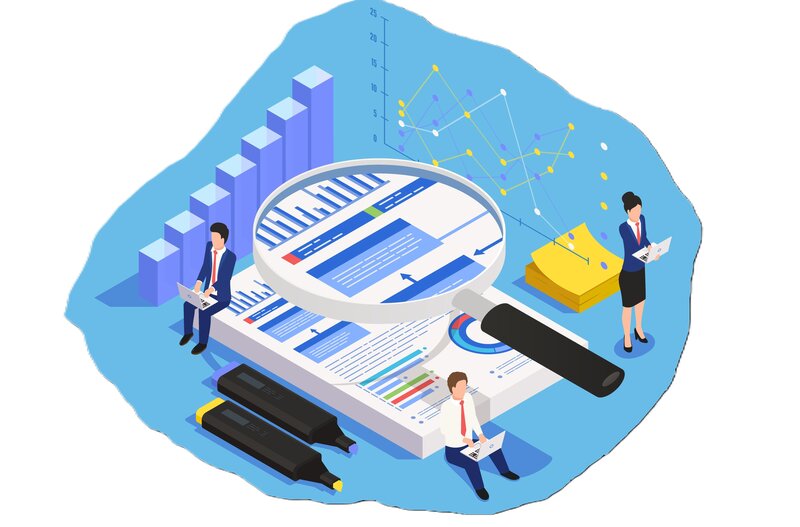What’s New in Audit Management: Exploring the Latest Practices and Trends in Audit Processes

Keeping up with today’s dynamic business landscape means embracing innovation at every opportunity. When it comes to audit management, traditional methods simply can’t keep up with the pace of modern business. That’s where audit management software solutions come in, offering vast new ways to get things done and simplify audits to drive continuous improvement.
Traditionally, audits have been a time-consuming and labor-intensive process, often plagued by manual data entry, paper-based systems, and fragmented communication channels. But with the usage of software solutions, all of that is changing.
So, what’s new in audit management processes? Audit management continues to evolve with advancements in technology, changes in regulations, and shifts in organizational priorities. Here are some recent trends and developments in audit management:
1. Technology Integration: Audit management software continues to improve, incorporating advanced features such as audit templates for a structured framework, automated initiation of audit processes through schedules, and other reporting tools. Additionally, emerging technologies such as artificial intelligence and machine learning are being leveraged to enhance the efficiency and accuracy of audit processes.
2. Integration with other Quality Management elements: Modern audit management processes are increasingly integrated with quality management systems. These practices give the ability for seamless creation and tracking of Corrective and Preventive Actions (CAPAs) and Non-Conformance Management (NCM) records. NCMRs and CAPAs are critical components of quality management, as they help identify deviations from quality standards and implement corrective actions to prevent recurrence. By incorporating NCMR and CAPA tracking into audit management software, organizations can streamline their quality assurance processes and ensure that audit findings are effectively addressed.
3. Remote Auditing: The COVID-19 pandemic accelerated the adoption of remote auditing practices. Auditors now rely more on online handling of audit tasks, remote access to systems and documents, and digital collaboration tools to conduct audits without physical presence.
4. Regulatory Compliance: Regulatory requirements are constantly evolving, requiring audit teams to stay updated and adapt their processes accordingly. This includes compliance with new data protection regulations, financial reporting standards, and industry-specific requirements.
5. Continuous Monitoring: Rather than conducting audits at fixed intervals, organizations are moving towards continuous monitoring and auditing. This involves real-time monitoring of key controls, transactions, and events to detect issues promptly and address them proactively.
6. Enhanced Reporting: Of course, one of the most significant advancements in audit management processes is the ability to generate comprehensive audit reports effortlessly. Stakeholders expect more insightful and actionable audit reports. Audit management now incorporates data visualization tools and interactive dashboards to present findings in a more compelling and understandable format, enabling better decision-making.
7. Audit Committee Oversight: Boards and audit committees are taking a more active role in overseeing audit activities and ensuring the independence and effectiveness of the audit function. This includes regular reviews of audit plans, findings, and recommendations.
Adopting a software solution is the key to starting the journey of the audit revolution toward a more streamlined, efficient, and insightful approach. Utilizing a software solution can help organizations transcend traditional audit methodologies and embrace a digital-first strategy that accelerates decision-making, enhances risk management, and drives continuous improvement. Plan for a new era of audit management – where agility meets accuracy, and innovation leads to transformative outcomes. Many Quality Management Systems (QMSs) offer solutions designed to ease your initial steps with confidence. Among these, Trackmedium QMS presents a standout solution: the Audit Management Module. Efficient and compelling, it empowers users to navigate audits with ease and assurance.
The Audit Management module is an innovative solution that streamlines audit processes, offering a centralized platform where you can initiate and manage audits, capture nonconformances, track CAPAs, identify recommendations, and generate comprehensive audit reports – all in one place!
For starters, the Audit Management module allows you to create reusable and standardized audit types, and initiate planned and unplanned audits with ease. Additionally, the Audit Management module enables you to produce detailed reports that provide stakeholders with valuable insights into your organization’s compliance status, performance trends, and areas for improvement. Whether it’s for internal review or external audits, the software ensures that you have all the information you need at your fingertips, saving time and simplifying the reporting process.
Conclusion
What’s new in audit management processes is the advent of innovative software solutions that are revolutionizing the way organizations conduct audits. From streamlining audit processes to improving efficiency and driving continuous improvement, the Audit Management software provided by Trackmedium QMS offers a comprehensive solution that simplifies every aspect of the audit process. So why wait? Embrace the future of auditing with the Audit Management module provided by Trackmedium QMS and take your organization to new heights of success.
Image by macrovector on Freepik




